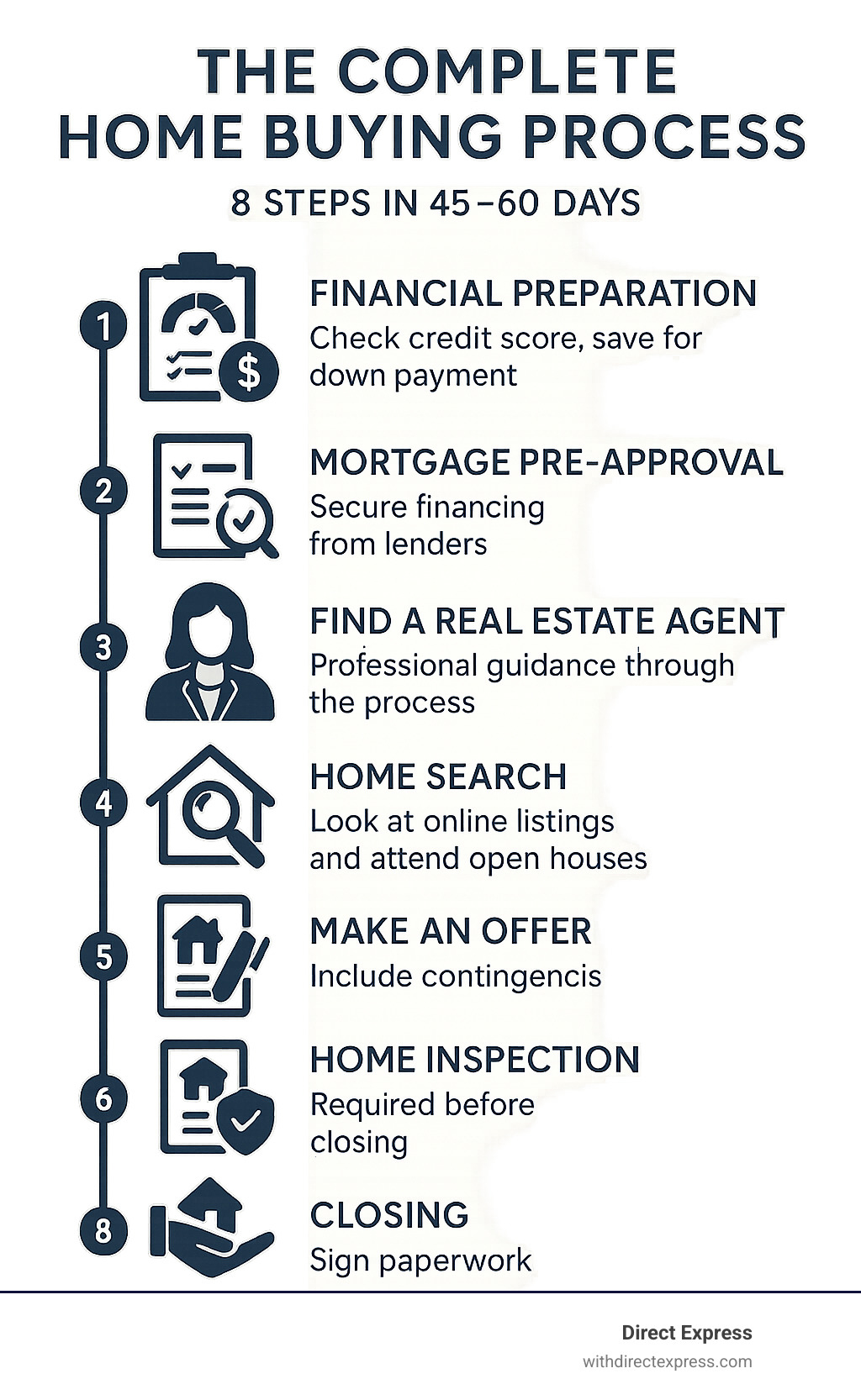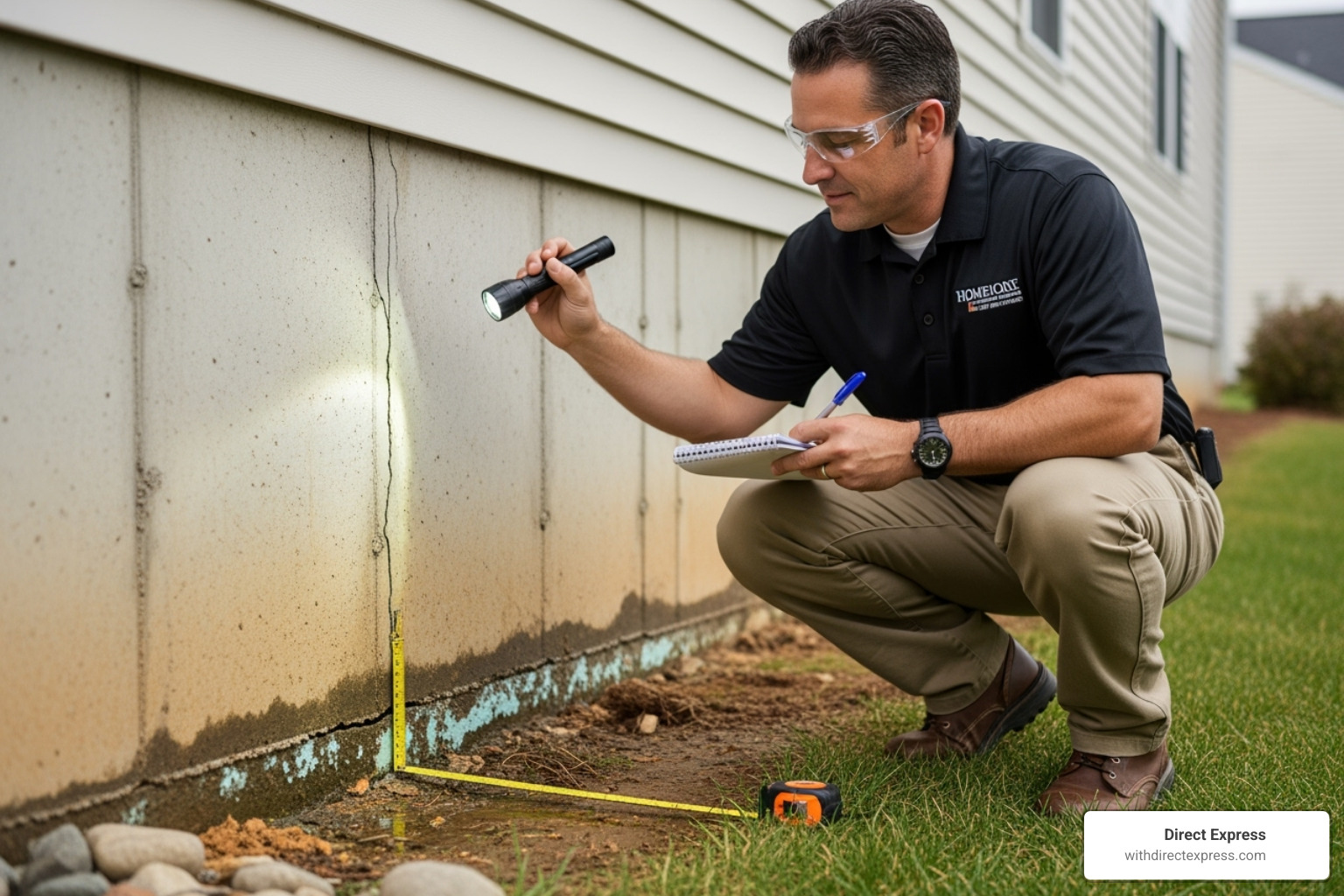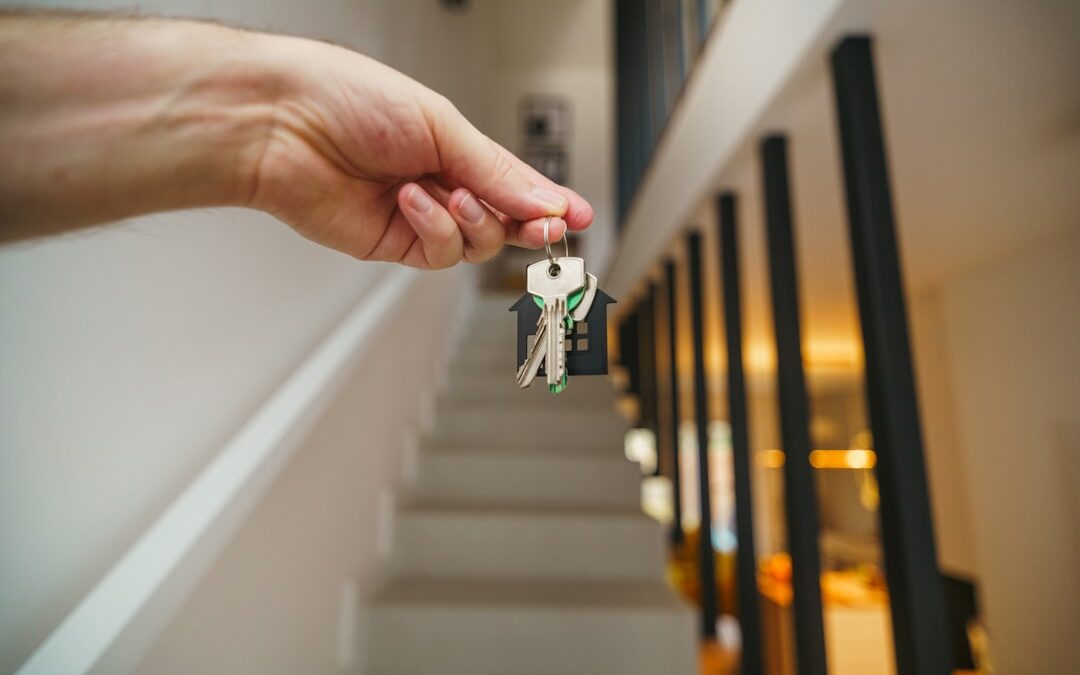Why Buying a Home is One of Life’s Most Important Financial Decisions
Buying a home is a major financial milestone that builds wealth and provides stability. The process involves several key steps that typically take 45-60 days from an accepted offer to closing.
Essential Steps for Buying a Home:
- Get your finances ready – Check credit, save for a down payment (3-20% of home price).
- Get pre-approved for a mortgage – Shop lenders and secure financing.
- Find a real estate agent – Get professional guidance.
- Search for homes – Use online listings and attend open houses.
- Make an offer – Include contingencies for inspection and appraisal.
- Get a home inspection – Identify potential issues before closing.
- Secure homeowners insurance – Required before you can close.
- Close on your home – Sign paperwork and get your keys.
The process might seem overwhelming, but with preparation and the right team, buying a home is manageable. Most buyers need a credit score of at least 620, a down payment of 3-20%, and proof of steady income. Housing costs should ideally stay below 31-40% of your gross monthly income, and you’ll need a debt-to-income ratio of 43% or less to qualify for most mortgages.
As Joseph Cavaleri, Broker and CEO of Direct Express Realty, I’ve helped countless families steer the complexities of buying a home. My experience in real estate, mortgages, construction, and property management provides unique insight into every step of the journey.

Simple buying a home word guide:
Part 1: Financial Preparation – Your First Step to Homeownership
Before you start dreaming about paint colors, getting your finances in order is crucial. This section covers the financial preparations for buying a home.
How Much Home Can You Truly Afford?
This is the most important question to answer first. Your affordability depends on your income, debts, credit, and interest rates. A good rule of thumb is to keep your total housing costs—principal, interest, taxes, and insurance (PITI)—below 28-31 percent of your gross monthly income.
Lenders also look at your Debt-to-Income (DTI) ratio, which is the percentage of your gross monthly income that goes toward monthly debt payments. You’ll generally need a DTI of 43% or less to qualify for most mortgages. For example, with a $6,000 gross monthly income and $2,000 in total monthly debts (including the new mortgage), your DTI is 33%, which is within the acceptable range. We encourage you to use a mortgage calculator to get a realistic estimate of what you can comfortably afford.
Understanding the Financial Requirements for Buying a Home
Beyond the monthly payment, prepare for these significant costs when buying a home:
- Down Payment: The cash you pay upfront. It can be as low as 3% for some conventional loans or 0% for VA and USDA loans, though the average is around 13%.
- Closing Costs: Fees for services like loan origination, appraisal, and title insurance, typically ranging from 2-6% of the loan amount.
- Cash Reserves: Lenders like to see that you have at least two months’ worth of mortgage payments saved after covering your down payment and closing costs.
- Ongoing Costs: Remember to budget for property taxes, homeowners insurance, and potential HOA fees.
Our team at Direct Express offers comprehensive mortgage services to guide you through every financial aspect.
How to Improve Your Credit Score for a Mortgage
Your credit score tells lenders how reliably you’ve managed debt. A higher score means better interest rates. While lenders use your FICO score, checking your Vantage Score is a good indicator of your credit health.
Here’s how to boost your score:
- Check Your Credit Report: Get your free report from TransUnion, Equifax, and Experian annually. Use this credit report checklist to guide you.
- Dispute Errors: Correcting inaccuracies can quickly improve your score.
- Pay Bills on Time: Payment history is 35% of your FICO score. Late payments hurt your credit.
- Lower Credit Utilization: Keep credit card balances below 30% of your limit.
- Avoid New Credit: Don’t open new accounts or make large purchases before or during the mortgage process.
While minimum scores vary by loan (e.g., 620 for conventional, 500-580 for FHA), aiming for 720+ will secure the best rates. Our mortgage specialists can provide custom advice to boost your score.
Saving for a Down Payment and Closing Costs
Saving for upfront costs is a common hurdle. With a strategic approach, it’s achievable.
Here are some tips to build your “house fund”:
- Set a Goal: Determine your target down payment. Putting down 20% helps you avoid private mortgage insurance (PMI), an extra monthly cost.
- Automate Savings: Set up automatic transfers to a dedicated high-yield savings account.
- Track Spending: Identify areas to cut back. Even small savings add up.
- Use Windfalls: Dedicate bonuses or tax refunds to your house fund.
- Gift Money: If family contributes, they must provide a “gift letter” to the lender.
We’re here to help you strategize and budget, making your dream of buying a home a reality.
Exploring First-Time Home Buyer Assistance Programs
Many states and local governments offer programs to help first-time homebuyers, including down payment assistance (DPA) grants or forgivable loans, special loan programs, and homebuyer education courses. These programs make homeownership more accessible. We recommend you talk to a HUD-approved housing counseling agency, as they can connect you with local programs and resources, including those available in Florida (St. Petersburg, Tampa Bay, Palm Harbor, Lutz, Wesley Chapel, Tampa, Largo, Parrish).
Part 2: Navigating Mortgages and Getting Pre-Approved
With your finances in shape, it’s time to secure financing for buying a home. Understanding your mortgage options will help you make confident decisions.
What Are the Different Types of Home Loans?
Choosing a home loan is like picking the right tool for the job. Each type serves different needs.
- Conventional loans are the most common and require a minimum down payment of 3-5% and a credit score of 620 or higher. If you put down less than 20%, you’ll pay Private Mortgage Insurance (PMI).
- FHA loans, backed by the Federal Housing Administration, are great for first-time buyers. They allow a 3.5% down payment with a 580+ credit score.
- VA loans offer zero down payment and no mortgage insurance for eligible service members, veterans, and surviving spouses.
- USDA loans help low-to-moderate income borrowers buy homes in eligible rural and suburban areas, often with no down payment.
You’ll also choose between fixed-rate mortgages (consistent rate) and adjustable-rate mortgages (rate can change). Most buyers prefer 30-year fixed-rate loans for their predictability. You can also learn about interest-only loans, though they are less common.
Here’s how conventional and FHA loans compare:
| Feature | Conventional Loan | FHA Loan |
|---|---|---|
| Minimum Down Payment | 3% (for some programs), typically 5-20% | 3.5% (with 580+ credit score) |
| Minimum Credit Score | Generally 620-660+ | 500 (with 10% down) or 580 (with 3.5% down) |
| Mortgage Insurance | PMI required if less than 20% down; can be canceled | Upfront and annual mortgage insurance required, often for life of loan |
How to Choose the Right Mortgage Lender
Comparing quotes from different lenders (banks, credit unions, mortgage brokers) can save you hundreds annually. Ask each lender about their interest rates, closing costs, and loan terms. Don’t feel pressured to accept the first offer. Remember to know your borrower’s rights throughout this process.
Our team understands the Florida market and can help you find a Mortgage Loan Officer who fits your needs. Having everything under one roof streamlines coordination between your mortgage and home search.
The Importance of Mortgage Pre-Approval
Getting pre-approved for a mortgage transforms you from a window shopper into a serious buyer. Pre-qualification is a rough estimate, but pre-approval is a conditional commitment from a lender for a specific amount after they’ve reviewed your finances (W-2s, pay stubs, bank statements, etc.).
A pre-approval letter makes your offer stand out. It tells sellers you’re financially prepared and can afford their home. Some pre-approvals even let you lock in an interest rate for 60-90 days.
Once pre-approved, avoid making large purchases, opening new credit accounts, or changing jobs until after you close. These actions can jeopardize your financing. The good news is that credit bureaus typically count all mortgage-related credit inquiries within a 30-day window as a single inquiry, so you can shop around with confidence.
Part 3: The Search – Finding Your Perfect Home
With your pre-approval letter in hand, the exciting part of buying a home begins! This is when you start exploring neighborhoods and imagining your life in different spaces.
Assembling Your Team: Finding a Great Real Estate Agent
Think of your real estate agent as your trusted guide. A great agent is your advocate, market expert, and voice of reason. They’ll help you find properties, provide market insights, and negotiate on your behalf.

In most cases, the seller pays your buyer’s agent’s commission, so their expert services usually come at no direct cost to you. Interview several agents to find one with experience in your target neighborhoods, like St. Petersburg or Wesley Chapel. Ask for references and check their track record.
Our Direct Express realty team brings deep local expertise across Florida. We’re here to help you learn about buying real estate in a supportive, not pushy, way.
How to Effectively Search for a Home
Being strategic while staying open to possibilities is key. Start your search online to get a feel for what’s available in your price range. Attend open houses to experience properties in person and notice details you can’t see in photos.
Create a wish list that separates your must-haves from your nice-to-haves. Prioritizing your needs helps you make decisions quickly. Location is everything, so consider your commute, school districts, and proximity to amenities. Also, think about property types. Single-family homes offer privacy, while condos and townhouses may offer amenities with less maintenance. If you’re considering investments, you might even want to search apartment buildings for sale.
The Value of Property Management Services
If you’re buying a home as an investment, your journey continues after closing. Managing tenants, maintenance, and rent collection can be a full-time job. This is where professional property management becomes invaluable.
A good property management company handles everything from screening tenants and preparing leases to collecting rent and coordinating repairs. They act as a buffer, ensuring your tenants have a positive experience while protecting your investment.
At Direct Express, our property management services are designed to provide this comprehensive support. We handle the day-to-day realities of being a landlord so you can focus on growing your portfolio.
Part 4: The Deal – From Offer to Closing on Your Home
You’ve found “the one”! Now it’s time for the final push to make that home yours. This section guides you through the crucial steps of securing your new property.
Making an Offer and Negotiating with Sellers
Your real estate agent will help you draft a formal offer letter. This document includes your proposed purchase price and an earnest money deposit (usually 1-3% of the price) to show you’re a serious buyer. This money is held in an escrow account and applied to your down payment or closing costs.
Crucially, your offer will include contingencies as safety nets. Common ones include an inspection contingency (to check the home’s condition), an appraisal contingency (to ensure its value), and a financing contingency (to secure your loan). Your agent will guide you on negotiation strategies. For more information, check out these tips on making an offer.
The Critical Role of the Home Inspection
Once your offer is accepted, the home inspection gives you a detailed look at the property’s condition. This is for your peace of mind, while the appraisal is for the lender’s protection.

A licensed inspector will check the roof, foundation, HVAC, electrical, and plumbing systems for major issues. Based on the report, you can negotiate repairs with the seller, ask for a credit, or reduce the sale price. If the inspection reveals issues, our Direct Express team offers construction and plumbing services to handle any needed repairs.
Securing Homeowners Insurance
Before your lender finalizes your mortgage, you’ll need a homeowners insurance policy. It’s required to protect their investment—and yours—from unexpected damages like fires or storms. It also covers your personal belongings and liability. If you’re buying a home in Florida, you’ll also need to consider hurricane and flood insurance. Shop around with different providers to find the best coverage at a competitive price. Learn more about what homeowners insurance is and why it’s important.
The Final Step: The Closing Process for Buying a Home
Closing day is when you officially become a homeowner. You’ll do a final walk-through to ensure the property is in the expected condition. At least three business days before closing, you’ll receive a Closing Disclosure detailing your final loan terms and costs. Review it carefully.
On closing day, you’ll bring a photo ID, proof of funds, and proof of homeowners insurance. You’ll sign a lot of paperwork, and once the funds are disbursed, you get the keys! Our integrated closing and title services help streamline this final step. You can use this closing checklist and guide to closing forms to prepare.
Frequently Asked Questions about the Home Buying Process
We know you have questions about buying a home. Let’s clear up some common ones!
How long does it take to buy a house?
On average, the entire process from deciding to buy to getting the keys can take 5 to 6 months. Once your offer is accepted, the closing process itself usually takes about 45 to 60 days. Being organized and responsive can help speed things along.
What credit score do I need to buy a house?
The required credit score depends on the loan type. For a Conventional Loan, lenders typically look for a score of 620 or higher. For an FHA Loan, you might qualify with a score as low as 580 (with a 3.5% down payment). VA Loans often require a minimum of 620, and USDA Loans prefer a score around 640. A higher credit score will generally get you a lower interest rate, saving you money over the life of the loan.
Can I buy a house with a low down payment?
Yes! While a 20% down payment helps you avoid Private Mortgage Insurance (PMI), it’s not always required. Many loan programs are designed to help people buy a home with less money upfront. FHA Loans require as little as 3.5% down, and some Conventional Loans allow for 3% down. For eligible borrowers, VA and USDA Loans can offer 0% down payment options. Additionally, Down Payment Assistance (DPA) programs can provide grants or loans to help cover initial costs.
Conclusion: Your Journey to Homeownership
Congratulations on completing this guide to buying a home! It’s one of life’s most significant milestones, and you’re now armed with the knowledge to succeed.
You understand the importance of financial preparation, the different types of mortgages, and how to steer the home search. You know what to expect when making an offer, during the inspection, and on closing day.
While the process can be complex, having the right team makes all the difference. That’s where our integrated approach at Direct Express shines. Instead of juggling a separate realtor, lender, and property manager, we bring everything together under one roof.
Whether you’re buying a home to live in or as an investment, our team handles it all: mortgages, real estate transactions, construction, plumbing, and property management. This streamlined approach means better communication, faster timelines, and less stress for you.
Homeownership is an achievable goal. Whether you’re a first-time buyer in St. Petersburg, upgrading in Tampa Bay, or investing in Wesley Chapel, Palm Harbor, Lutz, Tampa, Largo, or Parrish, we’re here to help make your dreams a reality.
Ready to take the first step? Start your journey to buying a home with us, and let’s find your perfect place to call home.










